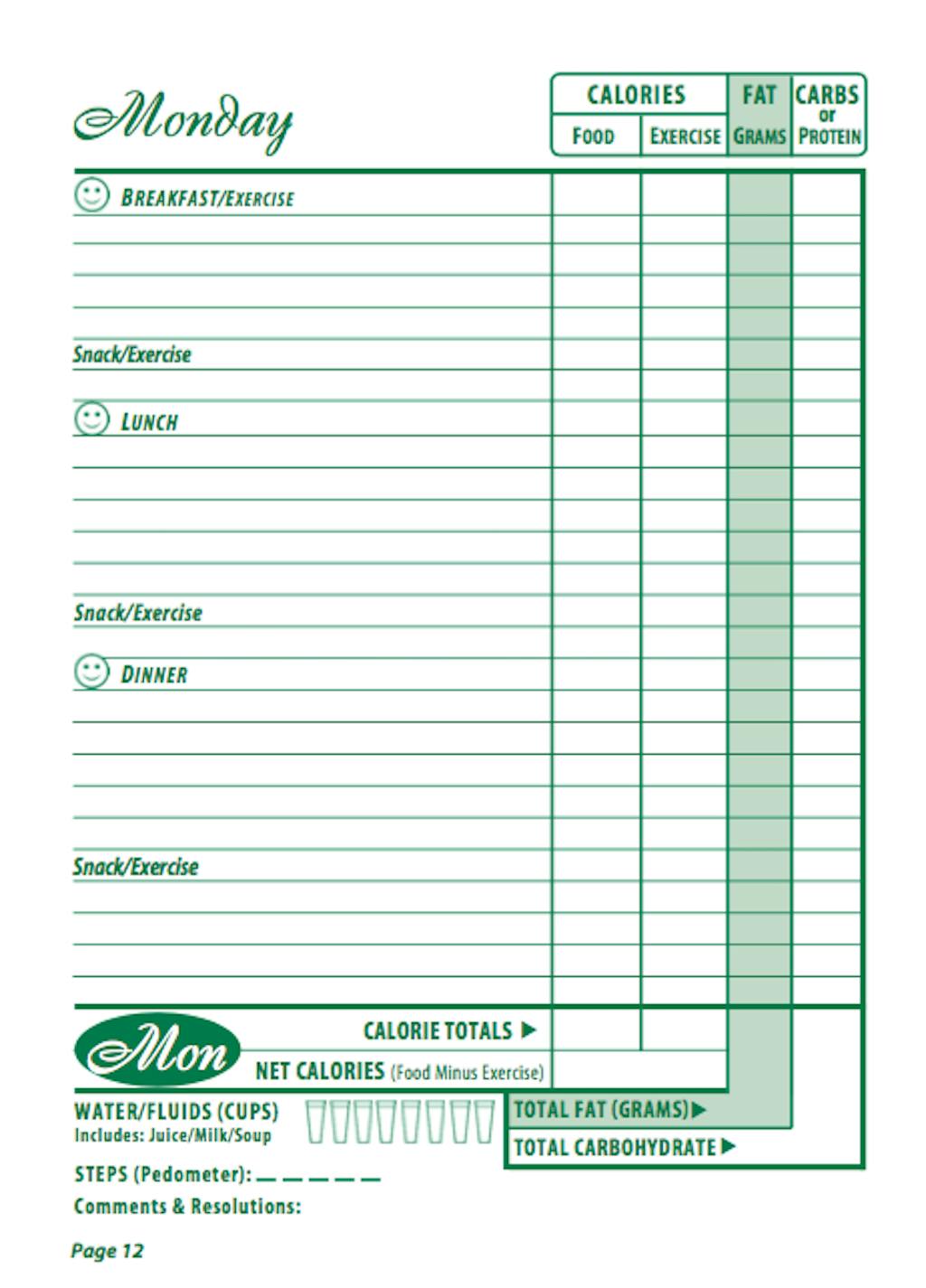Motivation for Weight Control: Keep it!

You know those super-charged hyper-achieving, personal-power, Tony Robbins disciple types whose sources of motivation seem about as bottomless as Donald Trump’s bank accounts? Do you ever wonder how they do it? How they just keep going and going, running towards their goals like there’s no tomorrow? Do you find yourself thinking: "It’d be so much easier to lose weight if I were motivated like them"?
While such zealous enthusiasm is not necessary, you can always learn better ways to get motivated and stay motivated. With sustained motivation, you are far more likely to reach your weight loss goals.
Five ways to keep it

Credit:marekuliasz iStock
When you’re motivated, you feel ready for anything. You’re fired up, ready to lose those pounds, ready to take on the world!
But what about a few weeks down the track? Will you feel the same? Probably not. Motivation is like a fire that constantly needs refueling and stoking, otherwise it goes out. Reminding yourself again and again of what you want, why you want it, and what you’ll do to get it is one way to keep your motivation burning (see part one of this article). Try these five other motivation strategies to further fan the flame.
Face the phases

Credit:phototechno iStock
To keep motivated, you need to recognize and prepare for the different phases of motivation.
The first phase of motivation is one of enthusiasm and strong vision, and it’s great for getting you started. But rule number one: Don't expect this initial motivation “high” to last.
The second phase of motivation is all about trial and error. You need to test different avenues for achieving your goals to see what works for you and what doesn’t. During this phase you experience success and failure. Make sure you acknowledge the successes and learn from the setbacks. Bouncing back from perceived failure is crucial here.
In phase three your motivation starts to ebb. You find yourself remembering when your motivation was high and you felt like you could overcome huge obstacles. Now that it’s low, everything seems too difficult and not worth the struggle. This is a high-risk phase. The symptoms of this stage can be anything from slipping back to old habits and finding excuses for not exercising, to doing and thinking things to sabotage your own success. When you feel motivation slipping, don't delay; enlist the aid of family and friends for support and encouragement, and log onto the Calorieking.com Community for support and advice in the forums, chats and meetings.

Credit:monkeybusinessimages iStock
Praise the pros and can the cons
There are always going to be pros and cons to weight loss.
To keep yourself motivated, you need to constantly reinforce the pros by thinking about them, writing them down, and imagining them occurring. Equally, you need to challenge the cons and stop them from sabotaging your efforts. Let’s work through a couple of typical examples:

Credit:raywoo iStock
- "Diets have never worked for me before, so why should one work now?"
That may be true, but why didn't they work? Maybe the timing wasn't right. Perhaps the diet was too restrictive or you had lifestyle issues that took precedence. Give yourself a break from negative criticism and think like Thomas Edison. He didn't see his countless attempts at inventing the light bulb as failures – he saw them as part of a process, a “bright idea” in the end.
- "Diets mean boring food. I won't be able to eat out and I'll miss my favorite foods."
While it's true that you can't eat exactly as you're accustomed to, there are wide varieties of good-tasting lower-fat and lower-calorie options at home and at restaurants. You just have to find ones that satisfy you. This con, like most cons, is really an excuse in disguise!

Credit:gbh007 iStock
Use mini-motivators

Credit:VladOrlov iStock
Setting reasonable, specific, and measurable milestone goals is a great way to keep motivated. Each goal achieved is a mini-motivator, supporting and sustaining you along the path to your final goal.
Make sure you record and reward each success along the way, no matter how small you think it is. For example, you might say that: "By January 21st, I will be eating 40 grams of fat per day." If you eat 90 grams of fat per day now and by January 21st you are eating 60 grams, you can still acknowledge your progress. Don't beat yourself up because you didn't hit 40 grams!
Acknowledge and revel in all achievements. The more successful you feel, the more successful you will be, and the greater your motivation to continue will be.
Remember people-power

Credit:Witthaya iStock
Very few people can achieve something as difficult as sustained weight loss without the encouragement and motivation of others.
Enlist the support of family and friends, share your goals with them, and talk to them when you're facing obstacles. Don’t forget to share and celebrate the successes with them as well. However, avoid discussing your weight-loss goals with anyone who is likely to dismiss or derail your efforts.
A good role model is also great for motivation. Is there someone in your life whom you admire for overcoming odds and achieving what they set out to do? Talk to them about how they reached their goals.Or check out CK's Success Stories for inspiration.

Credit:monkeybusinessimages iStock
You could also get involved in the CK community. You’ll find great support, encouragement and friendship in the forums and online groups. Plus reading other people's public blogs can help you to see how they dealt with situations similar to your own and provide you with inspiration.
Positive reinforcement works
A great way to stay motivated is by keeping track of your progress and rewarding yourself for it. Keep a journal of your goals and achievements and set up a system of non-food rewards for when you reach certain goals. (For the best journal available, check out our CalorieKing Food and Exercise Journal. There's a link to it at the end of this article.) Think of these rewards as bonuses, prizes, or incentives for a job well done.

The key here is that the goals you set have to be meaningful, not something you do on a regular basis or that you do too easily. It’s no good rewarding yourself for not eating donuts if they’re not a problem for you! Rewards for things you struggle with, however, are a great way to keep motivation levels up.
The reward doesn’t have to be material either. It can be something as simple as doing something nice for yourself like taking the day off from domestic jobs, going to a movie, having a long bubble bath – whatever rings your motivational bell. In fact, research suggests that non-material rewards may be more effective in conditioning behavior, as material rewards lack impact over time.

Credit:sasapanchenko iStock
Whatever rewards you choose, don't forget the biggest reward of all for staying motivated is achieving your final goal. It's hard work, but it's worth it!